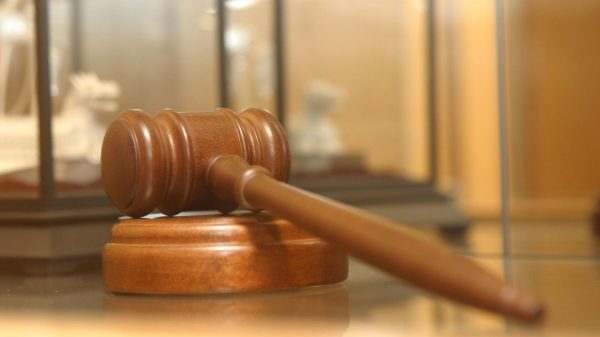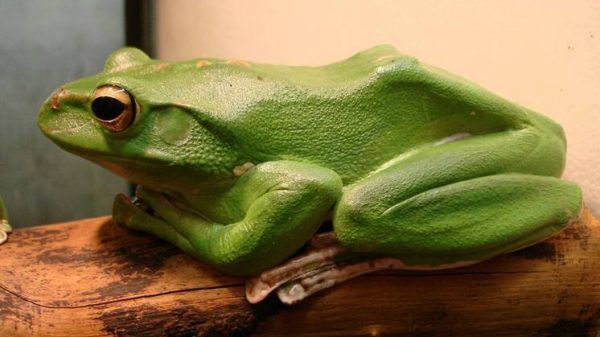The final stop on the Grand Princess Hawaii Cruise has turned out to be a federal courtroom in Los Angeles.
The tropical island cruise that departed San Francisco in February 2020 became one of the United States’ first Covid-19 hotspots with a coronavirus outbreak aboard that forced 3,000 vacationers into a weeks-long quarantine and was eventually connected to at least 122 cases and 6 deaths.
In the year since, Grand Princess passengers have tried to get some resolution to the horrors that befell them, reckoning with the cruise company’s actions and the Trump administration response to one of the first major health emergencies in the pandemic.
Many have filed lawsuits against Princess Cruises and some against its parent company Carnival – nearly three dozen cases have wound up in the LA courtroom of federal district court judge Gary Klausner. The passengers charge that the cruise company negligently sent them out to sea, despite being alerted to the dangers by a disaster it handled on another ship in Japan and a suspicious illness during a previous leg of the Grand Princess’ journey. They also claim that pre-boarding health checks were cursory and that the company did not take prompt action to stop the spread of the virus on board once the outbreak was under way.
“We were surprised at how ill-prepared they were,” said Denise Morse, who went on the cruise with her husband, David, to celebrate their 45th wedding anniversary. The Morses did not sue Princess Cruises, but they did fear for their life during the ill fated trip. “They didn’t seem to have any institutional knowledge passed down from one incident to the next.”
Crisis aboard the Princess
There was a crisp westerly breeze when the Grand Princess, the 950-foot luxury liner owned by Princess Cruises, powered out beneath the Golden Gate on the afternoon of 21 February 2020.
The ship had just completed a quick, same day turnaround in San Francisco, offloading 3,000 passengers who had traveled with the liner to Mexico, and loading a new group destined for Hawaii. The company had reason to be extra careful when boarding guests onto the ship.
Passengers aboard the company’s Diamond Princess cruise ship in Yokohama, Japan, had been in quarantine since early February, when 10 coronavirus cases were discovered onboard. The cruise company had promised the Grand Princess’s guests that it would be conducting health checks before embarking.
“We were aware of the Covid problems with the cruise ship docked in Japan, but we were assured that Princess staff would be checking passengers,” recalled passenger David Morse. “The procedure turned out to be three questions on a short form, something like: ‘Do you have a temperature? Do you feel sick?’ Of course everyone, answered ‘no’.”
The cruise motored westward across the Pacific. Guests settled in and unpacked their luggage in their staterooms. There were cocktail celebrations by the pools and bingo games and buffet dining to enjoy.
Over the next few days, passengers would pack into the Da Vinci Dining Room for formal night, play Texas Hold’em poker in the Grand Casino and gather to hear live classical guitar in the Crooners’ Lounge.
Princess Cruise Lines, however, was dealing with a problem. On the Grand Princess’ previous journey to Mexico, a passenger had sought treatment for acute respiratory illness. The 71-year-old man had disembarked in San Francisco, and would later become California’s first confirmed Covid-19 fatality. However, 62 Mexico passengers and the crew had remained aboard the ship for the next leg of the journey to Hawaii – potentially bringing the coronavirus with them.
On 25 February, four days into the Grand Princess’ Hawaii journey, the company emailed passengers who had traveled to Mexico the previous week to warn them that they may have been exposed to coronavirus, according to a lawsuit filed by Florida passenger Anna McArdle, on behalf of herself and her husband, Thomas, a former police officer, “all the while completely and carelessly failing to warn and inform current passengers of the same information”.
So the McArdles waited in the long lines on the ship’s gangways to disembark when it made land for a beach day in Kauai on 26 February. Throughout their island stay, passengers piled into charter buses to visit volcanoes, tropical forests and fern grottos, and mingled with fellow passengers at cruise-sponsored events such as cocktail luaus.
The passengers first started noticing something was out of the ordinary when the ship had left Hawaii and was on its way to a final stop in Ensenada, Mexico. On 3 March, the buffets were no longer self-service and guests had to line up while servers dished up the food.
The McArdles noticed their assistant waiter, Rachelle, was not at dinner. Staff members told the couple Rachelle was sick, and seemed quite concerned about her, according to the lawsuit.
On 4 March, the crew slipped a notice under passengers’ stateroom doors, announcing that the Mexico stop was cancelled because the US Centers for Disease Control (CDC) was investigating a “small cluster” of coronavirus cases on the previous cruise. Anyone suffering acute respiratory illness with fever, cough or chills should contact the ship’s medical center, the note said.
The unfolding crisis aboard prompted Gavin Newsom, the California governor, to declare a state of emergency. There were 21 people on the Grand Princess experiencing flu-like symptoms, Newsom said. The ship wouldn’t be allowed to return to port in California until testing could be conducted.
On 5 March, the cruise line’s daily newsletter, the Princess Patter, still announced group activities, including a morning meet-up for knitters and crafters, “Hawaiian Trivia Time” in the Explorers’ Lounge and “Beatles Hour” at the ship’s nightclub. By afternoon, however, passengers had been asked to stay in their rooms and a national guard helicopter was hovering above the ship’s decks, while a soldier in bright orange safety gear dropped down on a cable to deliver coronavirus test kits in a white cooler.
On 6 March, Vice-president Mike Pence announced the results: out of 46 tests conducted on the ship, 21 were positive. Nineteen crewmembers and two passengers were confirmed to have the coronavirus.
“All passengers and crew will be tested,” said Pence, who added the ship would be brought in to the port of Oakland and passengers would quarantine at military installations on shore.
‘We want them to travel’
As the Grand Princess passengers were awaiting their test results, Donald Trump weighed in. The president expressed his reservations about bringing the travelers ashore – arguing he didn’t want them to increase the US’ coronavirus case numbers. “I like the numbers being where they are,” he remarked to reporters. “I don’t need to have the numbers double because of one ship that wasn’t our fault.”
That same day, Trump told campaign contributors gathered at his Mar-a-Lago Club resort in Palm Beach, Florida, that he was intent on protecting the cruise industry amid fallout of the coronavirus crisis, according to later reporting by The Washington Post. Cruise officials were lobbying the administration to keep their cruises going, according to the Post, despite increasing pressure from health authorities to stop ships from departing.
Also on that day, campaign contribution records reviewed by the Guardian reveal that the head of Princess Cruises’ parent company, Carnival Corporation chairman Micky Arison, a billionaire cruise industry magnate and longtime associate of Trump, wrote a check to the Republican National Campaign Committee (RNCC) for $15,000. His wife, Madeleine Arison, also wrote a check for $15,000 that day.
Roger Frizzell, a spokesman for Carnival, said Arison has historically made contributions to the RNCC March fundraiser, which he noted was cancelled in 2020 because of the pandemic. He said the money goes to elect Republicans to congressional seats.
Federal campaign data does show Arison making occasional contributions to the RNCC and members of both parties. However, the contributions made the day the Grand Princess outbreak was confirmed were by far the largest campaign contributions Arison and his wife made during the four years of Trump’s administration.
The RNC did not immediately respond to a request for comment.
“We’re working with them very, very strongly,” Trump said of the cruise industry in a public statement three days later. “We want them to travel.”
Back on land
Meanwhile, the passengers aboard the Grand Princess cruise were stuck at sea. The cruise was originally scheduled to end on 7 March, but instead guests remained quarantined in their tiny staterooms, with meals delivered at their doorsteps by crewmembers in homemade hazmat suits.
The Grand Princess motored around in odd patterns off the coast of California, waiting for the go-ahead to dock.
One couple was unable to get extra diabetes medicine, they later alleged in a lawsuit, as the sporadic mealtimes in their four and a half days of shipboard quarantine sent their sugar levels into disarray. Others simply reported an agonizing wait. One family had to figure out how to entertain six children while locked in their tiny ship’s quarters. The ship’s television entertainment channel was so low on amusing material that crew members offered lessons on folding paper airplanes.
By 8 March, Anna McArdle began experiencing flu-like symptoms and called the medical center. They gave her some medicine and told her to stay in her room, she said.
Pulling into the Port of Oakland on 9 March was a relief for some. One grandmother was so excited to be back on land she did a little dance while waiting in line on the dock. But for most guests, a new, agonizing wait ensued.
Coordinating the evacuation, unloading them, and dispatching them to federally-run quarantine centers where they were to complete mandatory 14-day quarantines took several days.
Denise and David Morse were surprised that, after days of being isolated in their cabin, they were piled onto a crowded bus with other passengers for the 48-mile drive to Travis air force base, in Fairfield, California.
There, they said, they were shocked to find that despite being told to stay away from others, passengers quarantining at Travis were forced to crowd into the breakfast room and serve themselves coffee with their bare hands. They said they often lacked soap and cleaning supplies, and the staff seemed disorganized and unprotected. The coronavirus tests Pence had promised each passenger didn’t materialize.
“I feel that each day we stay here we increase our chances of contracting the virus,” wrote David Morse, in a diary he and his wife kept for the Guardian.
Anna and Thomas McArdle were allowed off the ship on 11 March. They were both struggling with flu-like symptoms, but were still put on a charter bus with other passengers and then on a charter flight to Dobbins air force base in Georgia, their suit said.
Thomas’ symptoms worsened day by day. According to the couple’s lawsuit, he was given only limited medical treatment at the base. During a temperature check on 14 March he became dizzy and unresponsive and was rushed off to a hospital. He died from Covid-19 two weeks later.
‘Sailing into foreseeable doom’
In their lawsuit and in interviews, passengers said they were baffled that neither the cruise company nor the Trump administration took preventive steps that might have averted the crisis.
By not informing Hawaii guests promptly about the illness that had been aboard the ship during the Mexico leg, Princess Cruises denied passengers the opportunity to limit their exposures early on, the McArdles’ lawsuit said. “If he was informed of the risk on February 25, 2020, when the former passengers were notified by email, Thomas McArdle would have disembarked at the first port of call in Honolulu,” the suit charges, noting that, while earlier passengers were warned, nothing was done about the potentially exposed crew and Mexico passengers who were still aboard the ship.
The company could also have conducted far more extensive health checks before letting passengers board, and could have taken more forceful action aboard once the outbreak was confirmed, the lawsuits argued.
Princess should have protected passengers or at least warned them before “allowing over 3,000 passengers, including the McArdles to sail into impending and foreseeable doom”, the McArdles’ suit said.
Princess Cruise Line told the Guardian in a statement that it does not comment on litigation. “Princess Cruises has been sensitive to the difficulties the Covid-19 outbreak has caused to our guests and crew,” the statement also said. “Our response throughout this process has focused on the wellbeing of our guests and crew within the parameters dictated to us by the government agencies involved.”
The passengers and their families who filed suit over the Grand Princess outbreak face an uphill battle in the Los Angeles federal courtroom where their cases have ended up, according to numerous attorneys who are experts at maritime law.
The antiquated framework of Laws of the Sea, governing cases involving ships, gives the cruise lines numerous advantages in court, attorneys said. Most crucially, the Death on the High Seas Act, a 1920 congressional statute designed to help the widows of seafarers lost at sea, severely limits the damages that plaintiffs can claim if they die or sustain injuries more than three miles off the coast.
“The cruise lines have a deck full of get-out-of-jail-free cards,” said maritime attorney Michael Winkleman, who represents the wife of one of the passengers who died after contracting coronavirus on the Grand Princess. Winkleman noted that the fact that the US-based companies are incorporated elsewhere and sail their ships under foreign flags frees them having to pay most US taxes or follow many of the county’s environmental and labor laws.
Thirteen lawsuits, involving passengers who feared for their lives on the cruise but didn’t get sick, have already been tossed out by the district court judge Klausner. Other cases are ongoing.
The US government, too, is facing scrutiny for failing to take quicker action.
At the time, returning cruise ship passengers – mainly from the Grand Princess and the Diamond Princess – accounted for approximately 17% of all reported coronavirus cases in the US, according to a CDC report on the cruise industry’s role in spreading the pandemic.
While other countries, including New Zealand and Taiwan, were quickly implementing science-based procedures to seal out the virus, the Grand Princess outbreak illustrated the US’s failure to take decisive actions that might have curbed the pandemic, said Dr Peter Chin-Hong, an infectious disease physician at the University of California, San Francisco.
“It was a metaphor: the boat coming from elsewhere to our shores with Covid-19 aboard and us not being able or willing to do anything about it,” he said. “The Grand Princess really drove home how much we were in denial of what was to come.”
Cruise boats continued to leave various ports loaded with American passengers for ten more days after the Grand Princess outbreak was declared an emergency. Eventually, the cruise industry voluntarily suspended cruising on 13 March, but outbreaks occurred on dozens of other ships. In all, according to an analysis by the Miami Herald, 87 cruise ships experienced outbreaks and 111 passengers and crew died.
“Trump was saying what would help his cruise line friends and disregarding the CDC’s advice to get people off the ships,” said Jim Walker, a maritime attorney who writes the blog Cruise Law News.
“This was all about profits,” said attorney Nanci Nishimura, who represents the Wong family. Ronald and Eva Yuk Wah Ma Wong signed up for a birthday celebration cruise on the Grand Princess under a package that came marked with the slogan “Come back new”. Ronald, 64, came down with Covid-19 while still in quarantine and never made it home again.
Nishimura said cruise companies depend financially not only on ticket prices but on an array of add-on services on the trips, including alcohol, tours and photos. “It was a cost benefit analysis: it was how much money can we make versus how much money will we lose if people die.”
All the while, Trump may have been aware of the dangers the coronavirus posed. For Denise Morse, the most telling revelation about the president’s handling of the cruise ship outbreak came when reporter Bob Woodward revealed in September that, back on 7 February 2020, seven weeks before the Grand Princess departed, Trump had told him that the coronavirus was “deadly stuff”, more deadly than the flu.
“You just breathe the air and that’s how it’s passed,” Trump had said, according to Woodward’s book, Rage.
“Trump was told it was highly contagious,” Morse said. “He knew it was airborne and he was told it was going to be the biggest challenge of his administration – and he played it down.”
“We would never have gotten on the ship if we knew what the government knew,” she said. “The ship would have never gone out of the Golden Gate.”
Patrick Greenfield contributed to this story.






















































Свежие комментарии